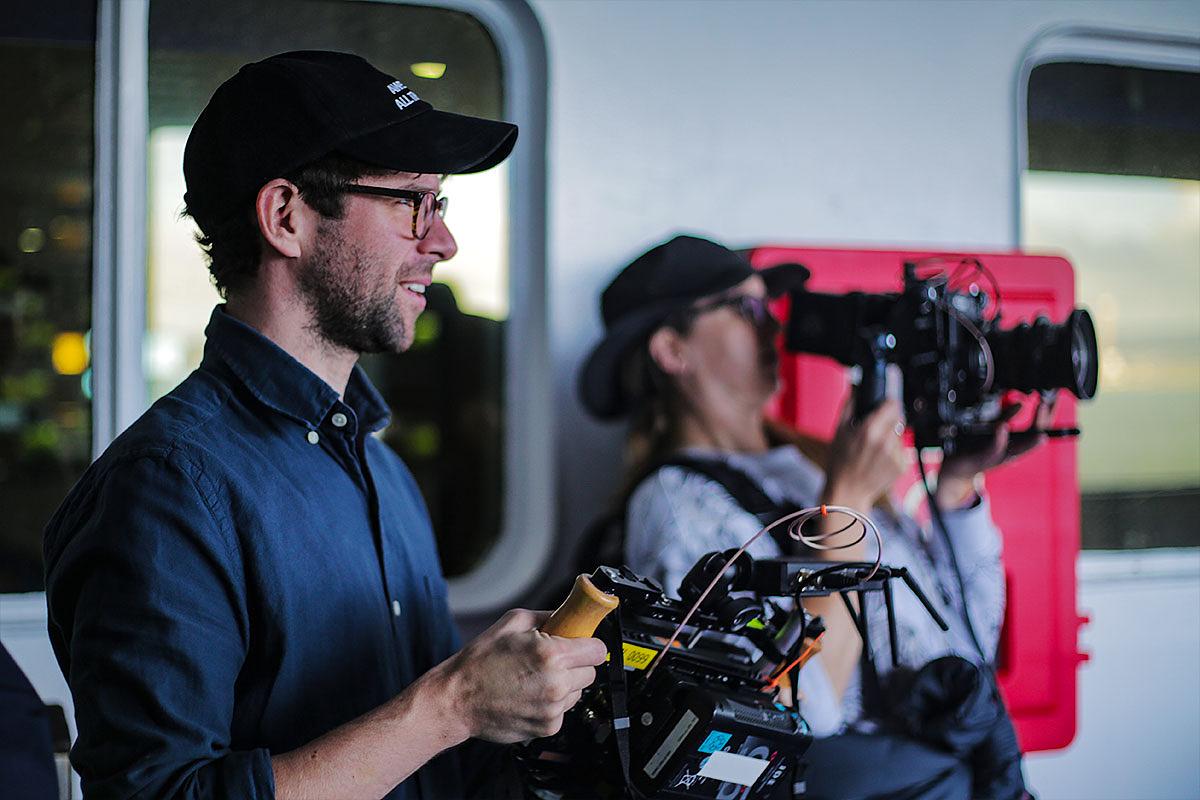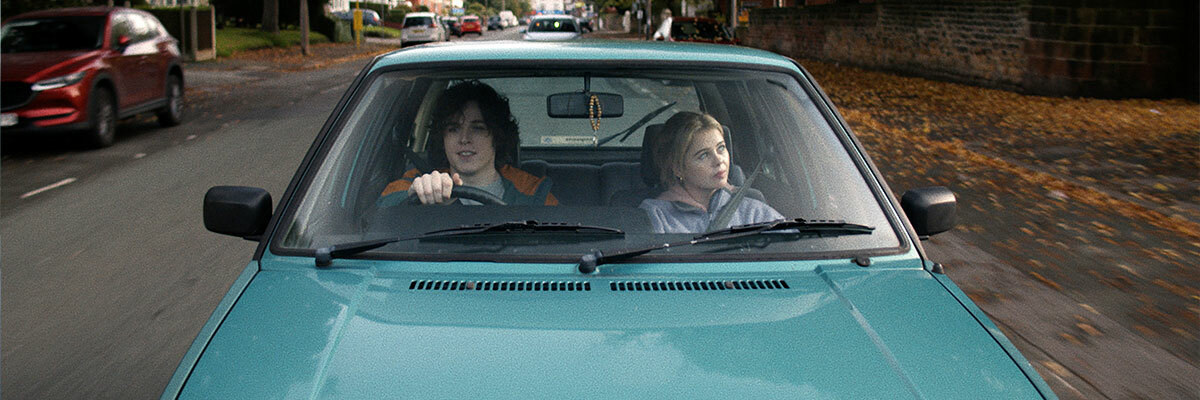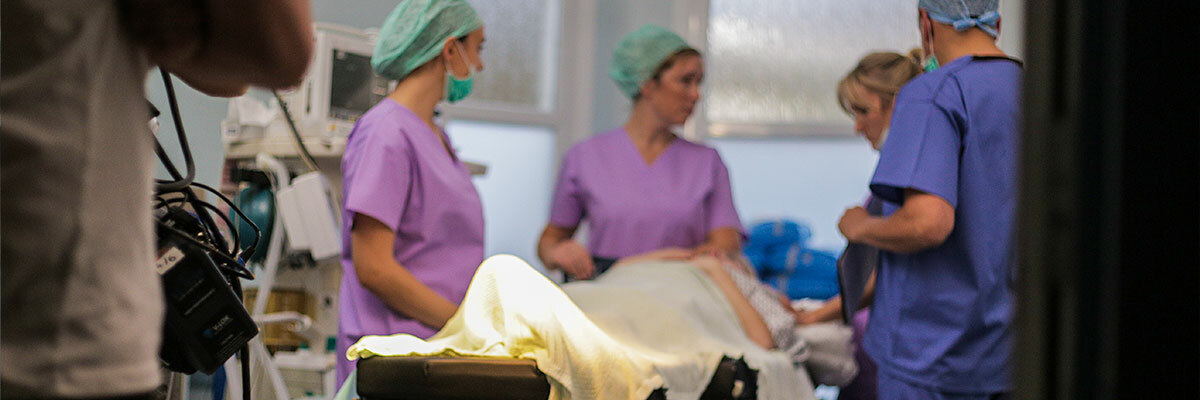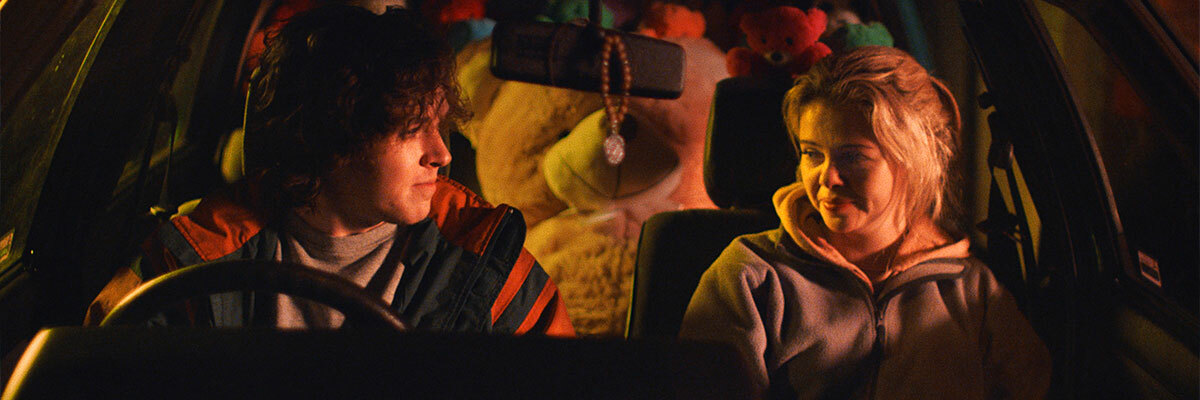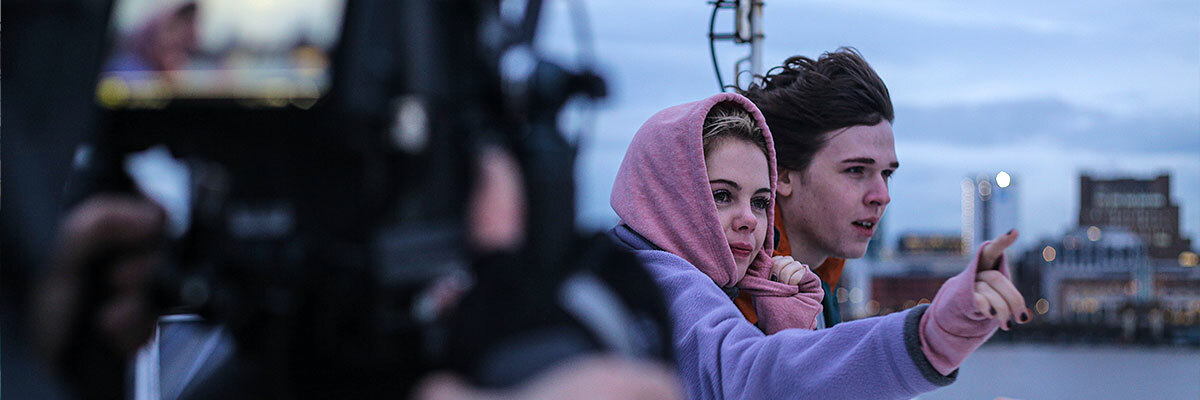Lee Armstrong discusses his latest short, Liverpool Ferry - a road movie which journeys to the heart of heated debates around reproductive rights.
On 22 October 2019, the 2019 Northern Ireland Act came into force and abortion was decriminalised. On the same day, across the water in Merseyside, Liverpool Ferry had just wrapped on production. For the team behind the short, which was supported by Film Hub North through the BFI NETWORK Short Film Fund, it was a powerful coincidence. They had set out to tell the story of a young woman secretly travelling from Belfast to Liverpool in order to access an abortion - a situation experienced by more than 1,000 women in 2018 alone. Now, they were capturing a specific moment of history as Northern Ireland stepped towards a long-debated cultural shift.
Almost two years later, with debates around reproductive rights still appearing in news reports from across the world, Liverpool Ferry feels as timely as ever as it launches on international shorts platform Omeleto. Ahead of the film’s online launch, we caught up with writer/director Lee Armstrong. In our chat, Armstrong discusses his approach to the film’s sensitive subject matter, why he eschews the grand British tradition of “serious” social realism, and the success of casting Derry Girls star Saoirse-Monica Jackson against type.
The film focuses on something that is often secretive and not present in public discussion. What was your way into this story?
I think, like most people, the first time I encountered abortion was at school. I remember the hushed rumours that would spread around when a girl was off. And the feeling of seeing them afterwards, and thinking they were suddenly a hell of a lot more mature than me.
I got interested in this particular story after a friend told me of her experience whilst sitting in an abortion clinic in London. She was surprised to hear so many Northern Irish women's voices there, and to see how young some of the women were; many of them sat by themselves, looking nervous and alone.
That image inspired me to do further research. I knew of the laws in Northern Ireland at the time, and I knew women travelled to the rest of the UK - but it wasn’t until I heard that story, had that image in my head, that I started to consider the real-life obstacles that women would have to face if they choose to have an abortion.
You’re telling a story that is drawn from a number of real-life experiences. Did this come with added pressure?
Not added pressure, not really. Whether I’m directing, writing or acting, I put myself under more pressure than anyone else could. My desire to make something the best it can be is always my main focus. Whether it is a story that focuses on real life experiences like Liverpool Ferry or if it’s a comedy narrative, what scares me the most when undergoing a project is the image of getting to the end and feeling I haven’t quite achieved what I envisaged when I started. That’s the pressure I feel.
As far as approaching the subject matter, I did lots and lots of research. I read lots of women’s accounts of their experiences online, and then allowed that information to inform the story.
For the clinic scenes in particular, we were really fortunate to have been supported by the British Pregnancy Advisory Service. They allowed us to shoot in the clinic in Liverpool that many of the women from Northern Ireland would have historically used when travelling over.
The nurses who worked in the clinic were great and, more importantly, they really cared about the safety and wellbeing of their patients. On a location scout, we managed to persuade a few of the nurses to come to the clinic on their day off for when we were shooting. We even persuaded two of them to jump in front of the camera and make their acting debut. That added an extra level of authenticity to that whole section of filming, especially during the procedure itself.
Alongside its serious subject matter, the film plays with the conventions of the road movie and the coming-of-age drama. What role do these genre elements play?
The thing is, and I know it might seem odd given Liverpool Ferry's subject matter, but I don’t like super serious and depressing films. We love that sort of thing in the UK - it's what we class as arty.
That sort of filmmaking has its place, but, for me, I’m a big fan of dramatic comedy. That's how I personally experience life on a moment-by-moment basis - everyday, I feel like my life begins swinging between comedy and tragedy before I’ve even finished my breakfast.
When I'm writing, I always try to pepper my work with both comedy and tragedy. I think it gives the audience a more complete experience, hopefully leaving them entertained. And I want the audience to be entertained when watching my work, not completely miserable.
With Liverpool Ferry, because of how you have to promote a short film in festivals and for online streaming, anyone watching the film will already be coming to it with certain emotional expectations. But the film's first act is designed to disarm that prior knowledge.
The start is set up as a road movie. It's meant to sweep the audience along with these young, naive characters. The audience is catching up with the narrative, enjoying the adventure of following two daft kids running away from home, arguing about love in the dead of night, and sitting with a stolen credit card in a 1992 turquoise VW Golf.
Then the second act twist, and the revelation of Sarah and Jules’ destination, brings things back down. I wanted to shock the audience into acknowledging the lengths young people in Northern Ireland had to go to when they were in that situation.
Saoirse-Monica Jackson is best known for Derry Girls, which examines cultural and political life in Northern Ireland, but through a much more comedic lens. How did she get involved with the project?
I met Saoirse at the BAFTA Rocliffe exhibition. She had been chosen to perform some scenes from the script as part of the event, and I knew straight away I had to get her to play the role.
I love Derry Girls - it’s so funny. But it needs quite big performances to bring the humour off the page. I didn’t want Liverpool Ferry to be like that in its performance, but I could see at the reading that Saoirse had more than enough ability to move to a more subtle performance when needed.
With the dramatic comedy tones I wanted to bring to the film, it made her a perfect fit. In certain scenes you can see her pulling the comedic elements out of the script, and then in the next moment she’s breaking your heart. I really rate her. And I’m not surprised to see she’s now heading to Hollywood.
Also, I need to give a big shout out to Ross McKinney, who was excellent. And to my old mate Lauren O’Rourke.
The film’s production coincided with the decriminalisation of abortion in Northern Ireland, but reproductive rights remain a contested issue. How does this context inform the film?
Abortion, even after decriminalisation, is still hotly debated. Just looking down the comment sections on the film's YouTube page, you can see how strongly both sides feel on the issue. We even had crew members not take on the project when they discovered what the script was about. But I think knowing that we were creating something relevant focused minds among the crew.
I think what Liverpool Ferry does well is try to stay impartial; it doesn’t judge either side. Instead, it allows people the opportunity to observe and consider how forcing personal ideologies on other individuals can put women, often very young women, in very vulnerable positions.
With the launch on Omeleto, I’m really excited to see Liverpool Ferry being watched by a wider audience. I hope it gives people a chance to just observe; to see the world from someone else’s perspective.
What are you working on now?
At the moment, I feel that there's a real lack of stories set in the North East; stories that celebrate the humour, history and culture of the region - especially of my hometown. So I've been working on a feature film and a TV mini series both set in the area.
